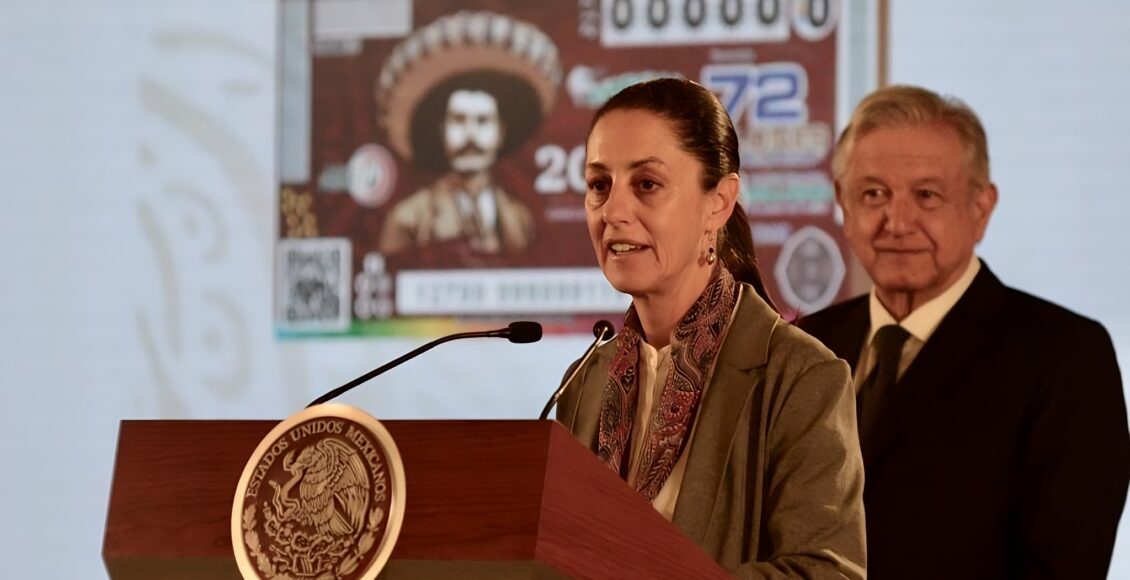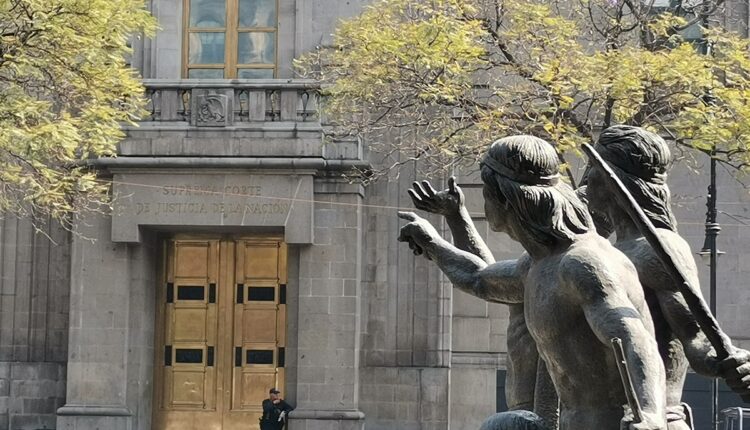New Leader, Old Playbook: Populism Threatens Democracy and the Rule of Law in Mexico

On June 2 2024, Mexicans went to the presidential polls to elect Claudia Sheinbaum to Mexico’s National Palace. Sheinbaum’s left-wing coalition comprising her Movimiento de Regeneración Nacional party (MORENA), the Greens, and the Labor party won a two-thirds supermajority in Mexico’s Chamber of Deputies, a majority in the Senate, and supermajorities in most of Mexico’s state legislatures. Sheinbaum herself earned the highest vote share in Mexico’s history. Sheinbaum is Mexico’s first female president, a climate scientist, and former mayor of Mexico city. As such, world leaders and political progressives have hailed her election as historic. However, in office, Sheinbaum is making good on her slogan of “continuity with change” by pursuing one set of reforms that are decidedly less progressive: following in the footsteps of her predecessor Andrés Manuel López Obrador (AMLO), she is dismantling the checks and balances that preserve Mexican democracy and rule of law.
Mexico’s democracy is both young and fragile. The Latin-American country only had its first democratic transition of power in 2000 after several decades of dominant-party rule by the Partido Revolucionario Institucional (PRI). An important aspect of Mexico’s transition was the development of strong institutions that could sustain democracy in the 2000s and 2010s, including an effective national electoral commission, the Instituto Nacional Electoral (INE) to ensure free and fair elections, a transparency watchdog, the Instituto Nacional de Transparencia, Acceso a la Información y Protección de Datos Personales (INAI), along with other agencies such as the Comisión Federal de Competencia Económica (COFECE), Mexico’s antitrust watchdog. Nowadays, the National Electoral Institute is Mexico’s second-most trusted institution overall. Moreover, Mexico’s INAI is one of the most effective freedom-of-information agencies in the world, and the public information requests it has facilitated have been fast and have been used by journalists to expose scandals and corruption within Mexico.

However, the institutions that have sustained democracy and the rule of law in Mexico since its transition have been under continuous attack. In particular, AMLO has had disdain for the INE since at least 2006, when he attacked the elections as “rigged” after narrowly losing the presidential elections to the right-wing candidate. Since his landslide election to the presidency in 2018, he has repeatedly attempted to increase his personal power and that of his party. In 2022, he proposed a plan to overhaul the INE by slashing its size and budget and creating elections to its top posts, a controversial move that was opposed by pro-democracy marches with tens of thousands of protestors. After he failed to gain the two-thirds constitutional supermajority to pass his original reforms, he proposed a “Plan B” that only required a simple majority, which would have slashed the budget of the INE by $150 million USD, reduced its independence and its ability to sanction politicians who violated election laws. In 2023, the Mexican Supreme Court voted 9-2 in order to strike down the reforms. AMLO’s contempt for the Mexican Supreme Court doesn’t stop at this ruling; the court has been a major obstacle to multiple proposed reforms. For example, the court has repeatedly posed obstacles to AMLO’s plan to give state-owned firms preference on Mexico’s national electricity grid. It ruled against the plan earlier this year after the US government raised objections based on Mexico’s legal obligation to not favor domestic firms under USMCA.
In the wake of the 2024 presidential elections, the MORENA party gained a supermajority that enabled AMLO to push through “Plan C”. Under this proposal, the public will elect all 1688 judiciary seats, with around half of seats up for election in 2025 and the other half in 2027. The current Supreme Court Justices’ terms will be terminated. Moreover, the number of justices on the supreme court will be reduced from 11 to 9, and they will serve shorter term limits. The proposal also creates a new Judicial Disciplinary Tribunal with the power to sanction judges. AMLO and Sheinbaum have both claimed the judicial reforms are necessary to tackle the issue of judicial corruption and impunity. The Supreme Court upheld the constitutional amendments, failing to reach the necessary 8 out of 11 votes to block the reforms. Rather than departing from AMLO’s policy as some had hoped, Sheinbaum has doubled down on the judicial reforms, lashing out against the Supreme Court when it nearly voted to overturn them.
Sheinbaum has gone even further in the footsteps of her mentor. In November, her party passed plans to gut seven key watchdog agencies, including the INE, INAI, and COFECE among four others. While the freedom-of-information functions of the INAI will be absorbed into the bureaucracy, abolishing an independent INAI gets rid of its legal ability to access state information and will reduce transparency and public accountability. The move means the government will not face pushback from within the agencies’ ranks when it violates democratic and rule of law principles.
However, the most violent reform that both AMLO and Sheinbaum have undertaken is the expansion of the military in public life. Human rights organizations such as Amnesty International have criticized Mexican militarization because the expanded role of the military in Mexico has led to excessive civilian death, torture, and other human rights violations. In just the first few weeks of Sheinbaum’s presidency, the military and National Guard killed six migrants and three bystanders respectively in their pursuit of drug cartel suspects. Despite this, Sheinbaum has vowed to strengthen the National Guard over other policing. The Supreme Court has sometimes foiled attempts at militarization: in 2018, it overturned the Internal Security Law which would have formalized the military’s role in combatting domestic crime. In 2023, it ruled against handing over the National Guard from civilian to military rule. However, once MORENA controls the court, this check will likely stop existing.
It is true that Mexico’s judicial system is imperfect. 37 per cent of those employed in the judiciary have a family member in the system. Moreover, Mexico’s judiciary suffers from impunity, with low rates of appropriate convictions and more than 90 per cent of cases never going to court, especially when it comes to crimes like homicide, femicide, sexual abuse and kidnapping. However, it’s not evident that the judicial reform will address these issues, and it may even exacerbate them. Since the vast majority of candidates will be culled by lottery, the process does not enable Mexican voters to choose among all the candidates they prefer. Additionally, the 2025 elections have been accompanied by massive budget cuts of the INE, a long-time goal of MORENA. In the run-up to 2024 election, at least 34 political candidates were assassinated by organized crime and hundreds more were victimized. Despite budgeting 13.2 billion pesos to run the 2025 judicial elections, the INE was only allocated 7 billion pesos, a serious constraint on it being able to uphold electoral integrity in a country where cartel violence led to the nation’s bloodiest election in history. The severe financial limitations of the 2025 judicial elections cast doubt on the INE’s capacity to ensure the availability and security of ballot boxes for all Mexicans.

MORENA’s package of reforms, without addressing the core issues of impunity and judicial capacity, will reduce the ruling party’s horizontal accountability by the courts and national agencies, in addition to grabbing more power through militarization. Since half of the elections will happen in a period of incredibly high popularity for MORENA, they will enable the party to capture the judiciary and avoid unfavourable rulings. The chief justice of the Supreme Court, critical of MORENA’s reform, will not run in the 2025 election in protest, as is the case for 8 out of 11 justices. Moreover, Sheinbaum’s abolishment of national agencies will reduce the power of popular national institutions that have been key to Mexico’s democratic transition.
With the elections scheduled for this June, the full impact of the reforms is still unclear. Maybe it is the case that judicial reforms will decrease nepotism via elections. However, the package of reforms as a whole clearly have the potential to increase state capture by cartels, undermine civilian safety and rights, and have already shocked investors worried Mexico will not uphold its international legal obligations. The future of Mexico’s democracy is at stake, and it remains to be seen if it will survive the test of populist reform.
Featured image: “Centenario luctuoso de Emiliano Zapata” by the Government of Mexico City is licensed under CC BY 4.0.
Edited by Allison Dera
